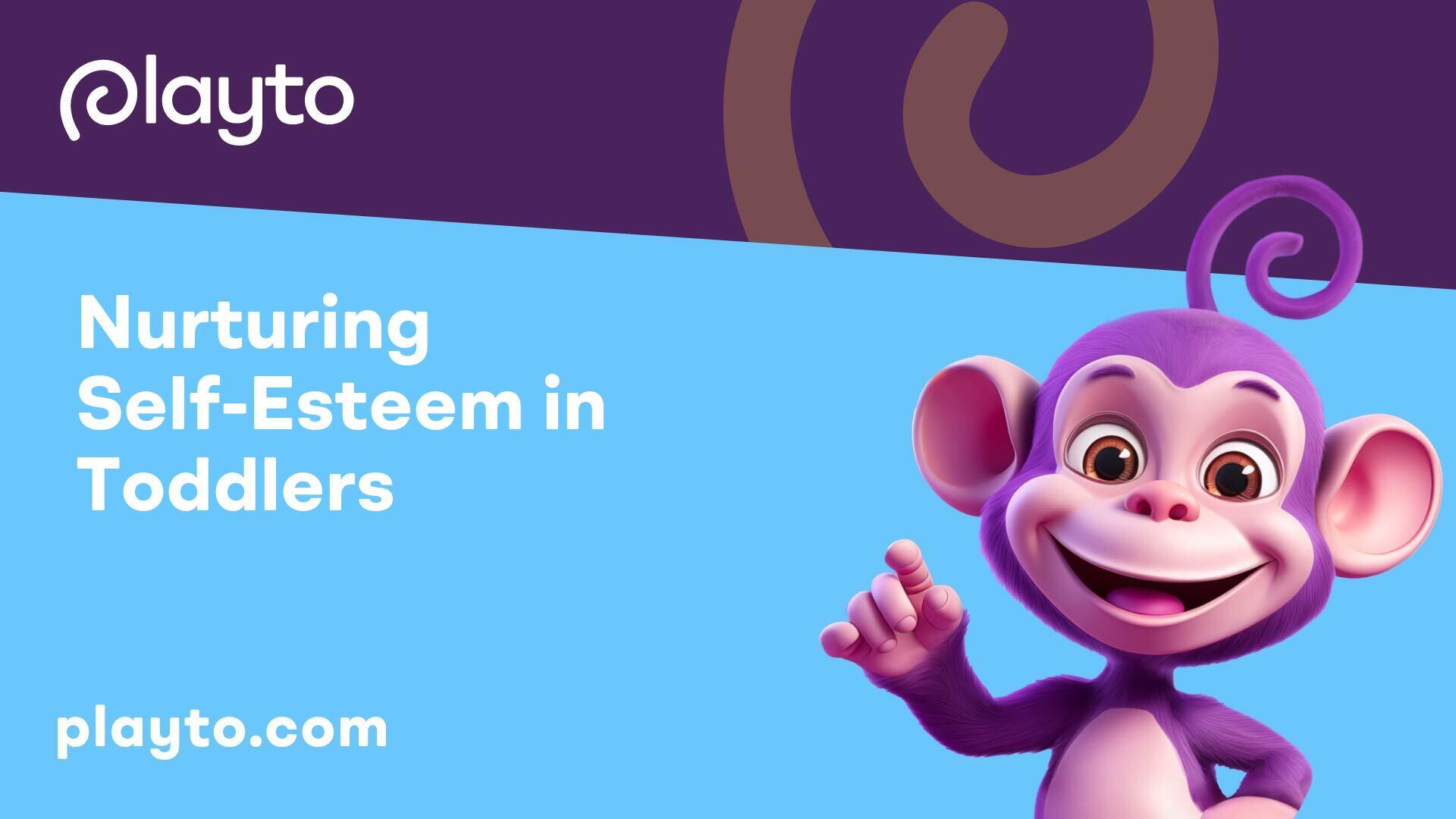
Nurturing Self-Esteem in Toddlers
Building confidence in toddlers at daycare is a fundamental aspect of their emotional development. Understanding the importance of self-esteem and recognizing its impact on toddlers is crucial in providing the necessary support and encouragement during this critical stage of growth.
Importance of Self-Esteem
Toddlers, aged between 1-2 years, are beginning to form a sense of themselves and their capabilities. Nurturing their self-esteem during this developmental phase is essential for their overall well-being. By giving toddlers responsibilities, allowing them to make choices, and acknowledging their efforts, caregivers can help instill a sense of confidence and worth in young children.
Positive self-esteem in toddlers lays a strong foundation for their future social interactions, emotional resilience, and overall success. When toddlers feel confident in their abilities and value their individual worth, they are more likely to engage positively with others, take on new challenges, and navigate obstacles with greater resilience.
Impact of Self-Esteem on Toddlers
The impact of self-esteem on toddlers is profound and far-reaching. Warm and nurturing relationships play a pivotal role in shaping a toddler's self-esteem. When caregivers provide responsive and caring interactions, toddlers feel valued and accepted, fostering a sense of belonging and self-worth.
Active parental involvement in a toddler's daycare experience has been shown to have numerous benefits, including enhancing parent-child connections, reducing behavioral issues, and promoting social and emotional skills. Research has also highlighted the positive impact of parental engagement on academic success, social development, and emotional growth in preschool-aged children [3].
Caregivers, both at home and in daycare settings, play a vital role in cultivating a toddler's self-worth and shaping their self-identity. Through responsive and nurturing interactions, caregivers contribute significantly to a toddler's social, emotional, cognitive, and language development. These early experiences with caregivers lay the groundwork for a toddler's long-term well-being and form the basis for healthy self-esteem and confident self-identity.
By recognizing the importance of self-esteem in toddlers and understanding its profound impact, caregivers can create a supportive and nurturing environment that fosters confidence, resilience, and positive self-worth in young children at daycare.

Strategies for Building Confidence
In the nurturing environment of a daycare, fostering confidence in toddlers is paramount for their overall development. Building a toddler's self-esteem can be achieved through several strategies aimed at encouraging independence, providing responsibilities, and offering choices.
Encouraging Independence
Encouraging toddlers to explore their capabilities and make decisions independently is a fundamental aspect of boosting their self-esteem. By providing opportunities for self-reliance, toddlers develop a sense of accomplishment and confidence in their abilities. Empowering toddlers to complete tasks on their own, such as putting away toys or choosing their activities, allows them to take pride in their achievements and build resilience.
Providing Responsibilities
Incorporating age-appropriate responsibilities into a toddler's routine can significantly contribute to their self-esteem. Tasks like tidying up after playtime, feeding themselves, or watering plants provide toddlers with a sense of purpose and achievement. By entrusting them with responsibilities, caregivers convey trust in the toddler's capabilities, reinforcing their self-worth and boosting their confidence.
TaskResponsibilitiesPutting away toysEncourages tidy habits and organizational skillsFeeding themselvesPromotes independence and motor skills developmentWatering plantsFosters a sense of care and responsibility for living things
Offering Choices
Granting toddlers the freedom to make choices within a structured environment empowers them to assert their preferences and autonomy. Whether it's choosing a toy to play with, selecting a snack from options, or picking an activity, providing choices enables toddlers to exercise control over their environment. This sense of agency fosters their decision-making skills and self-confidence, laying the foundation for healthy self-esteem.
By incorporating strategies that focus on encouraging independence, providing responsibilities, and offering choices, caregivers play a pivotal role in nurturing toddlers' confidence and self-esteem. These initiatives not only promote positive self-perception but also lay the groundwork for later social and emotional development. For more insights on fostering positive behaviors in toddlers, explore our article on toddler milestones in daycare to ensure your little ones thrive in a supportive and empowering environment.

Creating Supportive Environments
In the realm of daycare for toddlers aged 1-2 years, creating supportive environments plays a pivotal role in building confidence in these young ones. Two essential aspects encompass building positive relationships and fostering a sense of belonging.
Building Positive Relationships
The foundation of children's self-esteem is rooted in warm and loving relationships. Caregivers and educators in the daycare setting have a significant impact on a toddler's self-worth and sense of belonging. By engaging in responsive and caring interactions with toddlers, they convey a message of acceptance, value, and capability. This interaction helps toddlers feel valued and worthwhile, contributing to the nurturing of their self-esteem.
Emphasizing positive relationships within the daycare setting creates a safe and secure environment for toddlers to explore and learn. When toddlers feel supported and respected by those around them, they are more likely to develop a positive self-image. Caregivers need to be consistent in their approach, providing emotional support and encouragement to help toddlers build confidence in their abilities and develop a sense of trust in their surroundings.
Fostering Sense of Belonging
For toddlers in daycare, a sense of belonging is essential for their emotional well-being and development. The learning environment, both physical and social, significantly influences a toddler's sense of self [5]. Caregivers play a crucial role in creating a positive, safe, and nurturing environment that fosters a sense of belonging among toddlers.
Encouraging participation in group activities, promoting collaboration with peers, and recognizing each toddler's individual strengths and contributions are key elements in fostering a sense of belonging. Toddlers thrive in environments where they feel accepted, included, and valued. By creating a welcoming and supportive atmosphere within the daycare setting, caregivers can help toddlers develop a sense of security and confidence in their social interactions.
By focusing on building positive relationships and fostering a sense of belonging in the daycare environment, caregivers can empower toddlers to explore, learn, and grow with confidence. These supportive environments create a foundation for toddlers to develop a strong sense of self and resilience, setting the stage for their future success and well-being.
Family Involvement and Rituals
Family involvement and rituals play a significant role in building confidence in toddlers at daycare. By strengthening family bonds and encouraging contributions, parents and caregivers can create a supportive environment that nurtures the self-esteem of young children.
Strengthening Family Bonds
Warm and loving relationships are the cornerstone of children's self-esteem, making them feel valued and worthwhile. Raising Children Network emphasizes that these relationships are cultivated through responsive and caring interactions with the child, which in turn strengthens their self-esteem and sense of belonging.
One effective way to enhance family bonds is by incorporating meaningful rituals into daily routines. Rituals, such as family meals, bedtime stories, or weekend outings, provide children with a sense of stability and security. These shared experiences create lasting memories and strengthen the emotional connection between family members. By participating in these rituals, toddlers feel a sense of belonging and develop a positive self-image.
Encouraging Contributions
Family rituals not only strengthen bonds but also offer opportunities for children to contribute and feel valued. Raising Children Network suggests involving children in household activities such as setting the table, washing vegetables, or assisting in meal preparation. These simple tasks empower toddlers to contribute to the family unit, instilling a sense of accomplishment and responsibility.
Encouraging contributions from a young age teaches toddlers the importance of cooperation and teamwork. By actively involving them in family tasks, caregivers not only build the child's self-esteem but also foster a sense of agency and confidence in their abilities. This participation in family rituals and responsibilities contributes to the child's overall sense of self-worth and belonging.
Through strengthened family bonds and opportunities for contribution, caregivers can create a nurturing environment that promotes the development of self-esteem and confidence in toddlers at daycare. By fostering a sense of belonging and value within the family unit, children can navigate their early years with a strong foundation of self-assurance and resilience.
Positive Reinforcement Techniques
Positive reinforcement plays a pivotal role in building confidence in toddlers at daycare. By focusing on enhancing positive behaviors, caregivers can create a nurturing environment where children feel valued, supported, and encouraged to grow and learn. It is essential to understand the importance of positive reinforcement and recognize the various types of positive reinforcement that can be utilized to promote child happiness and well-being.
Importance of Positive Reinforcement
Positive reinforcement is a powerful tool that increases the likelihood of a child's good behavior being repeated in the future. It is akin to how adults are motivated by receiving a paycheck for their work, providing a sense of satisfaction and encouragement to continue engaging in positive actions.
Children respond exceptionally well to praise and positive reinforcement, regardless of their age. By emphasizing positive interactions and acknowledging good behaviors, children are empowered to repeat those behaviors as they strive to please their caregivers and be recognized for their efforts.
Types of Positive Reinforcement
Positive reinforcement can take various forms, allowing caregivers to tailor their approach based on the child's preferences and behaviors. Here are some effective types of positive reinforcement commonly used in daycare settings:
Type of Positive ReinforcementDescriptionVerbal PraiseOffering words of encouragement and affirmation, such as "Great job!" or "Well done!"Extra PrivilegesGranting special privileges or opportunities for positive behavior, like extra playtime or choosing an activityTangible RewardsProviding physical rewards, such as stickers, small toys, or certificates, to acknowledge good behaviorSticker ChartsUsing a visual chart to track and reward positive actions, motivating children to achieve specific goalsSpecial OutingsPlanning special outings or activities as a reward for consistent positive behaviorFavorite TreatsOffering favorite snacks or treats as a form of reinforcement for good behavior
It's important to note that positive reinforcement doesn't always have to involve material items or expensive treats. The key is to identify what motivates each child and adapt the reinforcement strategy accordingly to promote a positive and nurturing daycare environment for toddlers.
Role of Caregivers in Self-Esteem
Caregivers play a pivotal role in shaping the self-esteem of toddlers in daycare, influencing their self-worth and self-identity. The interactions and relationships that toddlers have with their caregivers significantly impact their sense of self and well-being, as outlined in educational resources, such as Virtual Lab School.
Cultivating Self-Worth
Caregivers who are responsive and nurturing create a secure environment for toddlers, fostering a sense of confidence and happiness. Positive interactions with caregivers help toddlers feel valued and capable, contributing to the development of their self-worth. On the other hand, inconsistent or negative messages can lead to feelings of insecurity and self-doubt [4].
To cultivate self-worth in toddlers, caregivers should focus on providing a supportive and accepting environment where children feel respected and encouraged. By acknowledging toddlers' efforts, celebrating their successes, and offering reassurance during challenges, caregivers can help toddlers build a positive self-image and belief in their abilities.
Shaping Self-Identity
Young children derive their sense of self through the interactions they have with caregivers and significant adults in their lives. Caregivers in daycare settings play a crucial role in shaping toddlers' self-identity by conveying acceptance, value, and competence. The messages that caregivers communicate to toddlers through their words, actions, and the classroom environment impact how toddlers perceive themselves and their capabilities [5].
To foster a strong self-identity in toddlers, caregivers should create an environment that promotes a positive self-concept and self-confidence. This involves intentional planning of activities, interactions, and the physical space to reflect acceptance, encouragement, and belief in each toddler's unique qualities and potential.
By understanding the critical role they play in nurturing self-worth and shaping self-identity, caregivers in daycare settings can create a supportive and empowering environment for toddlers to develop a strong sense of self-esteem. Through consistent positive interactions, encouragement, and a focus on each child's individual strengths, caregivers can help toddlers build a foundation of confidence and self-assurance that will benefit them in their social, emotional, and cognitive growth.
References
[2]:
[3]:
[4]:
[5]:
[6]:
